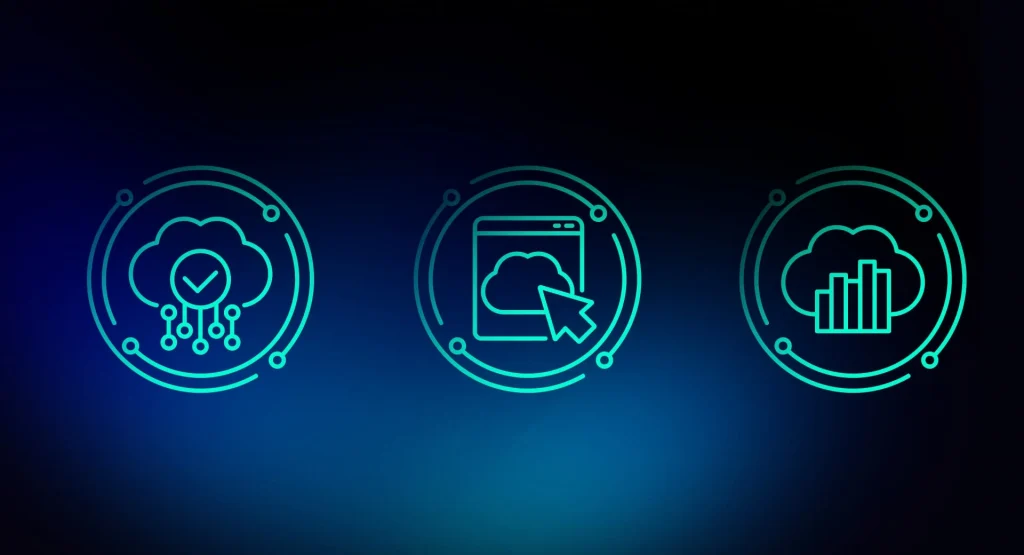How White-Label VSaaS Platforms Enable Scalable Business Expansion
In the ever-evolving landscape of modern business, innovative strategies are vital to ensuring sustainable growth and success. Among these strategies, White Label VSaaS Platform stands out as a transformative strategy, offering a host of advantages that allow businesses to scale efficiently, meet diverse customer demands, and navigate challenges with unmatched agility.
The landscape of video surveillance has been revolutionized, so now service providers can rebrand existing cutting-edge solutions as their own. In this article, we delve into the technical details and explore how to not only survive but thrive in a competitive environment.
Understanding the Core of White Label Software
At its core, white label software represents a business model that allows enterprises to rebrand software solutions developed by other companies as their own. The most prevalent form of white labeling operates through a Software-as-a-Service (SaaS) model, where cloud-based platforms facilitate seamless software use.

This rebranding allows businesses to offer software services to their clientele under their unique brand identity, streamlining the entire process without embarking on exhaustive and resource-intensive software development cycles.
Enhancing Telecom Services with White Label Video Surveillance
The significance of white label software is particularly evident in video surveillance systems. Imagine a scenario where a telecom company wants to offer its clients a video surveillance system with advanced capabilities. Developing such in-house software would not only demand substantial time and resources but also require a deep understanding of complex algorithms, machine learning techniques, and data processing.
Instead of building the software from scratch, the telecom carrier can partner with a white label VSaaS platform. Here’s a technical example to demonstrate how it works:
Example Scenario: Empowering Telecom Carriers with White Label Video Surveillance Software
Imagine a forward-thinking telecom company continually seeking innovative ways to serve its business and individual customers better. This telecom company recognizes the opportunity to expand its service portfolio and reinforce its position in the market by offering Video Surveillance as a Service (VSaaS) to both its business (B2B) and individual (B2C) clients.
Challenge: As a telecom company, they excel in communication services but lack the in-house expertise required to develop a complex video surveillance system. They understand the growing need for security and surveillance solutions but recognize that creating such a system from scratch would be time-consuming, costly, and beyond their current capabilities.
Solution: To overcome this challenge, the telecom company decides to partner with a trusted white-label VSaaS platform to quickly and efficiently deliver customized video surveillance services under its brand.
Implementation: Here’s how they put it into action
Selecting the White Label Solution: After careful evaluation, the telecom company identifies a white-label VSaaS platform that aligns with its vision. This platform offers a comprehensive suite of features, including real-time monitoring, cloud storage, and mobile access.
Branding and Customization: The telecom company works closely with the white-label provider to tailor the solution to its specific requirements. They incorporate their branding elements, such as logos and colors, into the user interface, ensuring a consistent brand experience for all clients.
B2B and B2C Offerings: The telecom company launches dual offerings, catering to the unique needs of both business clients and individual customers. Business clients receive features like multi-site monitoring and advanced analytics, while individual customers benefit from user-friendly mobile apps and home security features.
Client Access: Clients in both segments gain secure access to their surveillance systems through branded portals and mobile apps. They can monitor their premises, access live camera feeds, and review recorded footage, all from a user-friendly interface.
Benefits:
Market Expansion: The telecom company extends its service portfolio, attracting a broader customer base in both the B2B and B2C segments.
Cost Efficiency: Leveraging a white-label solution saves time and resources compared to in-house development, especially given their limited expertise.
Branded Experience: Clients enjoy a seamless and branded video surveillance experience that reinforces the telecom company’s identity.
Scalability: The white-label solution allows the company to scale its VSaaS services rapidly as demand grows.
This strategic move allows the telecom operator to tap into the growing VSaaS market while delivering a branded, user-friendly experience to their diverse customer base.
Delving Further into How White Label Software Brings Business Advantages
Beyond its conceptual appeal, the technical merits of this model make it an appealing option for businesses looking to improve efficiency and innovation.
Let’s dive into the good stuff:
Customizability and Deep Brand Integration
White label software champions a bespoke experience for businesses and their clients. Through precise customization, businesses can align the software seamlessly with their existing technical ecosystem. This integration at the technical level fosters a sense of continuity and brand integrity as the software becomes an integral part of the overall infrastructure.

Amplified Product Line Diversification
In a fast-paced business world where adaptability is key, the white label software model becomes a quick and smart expansion tool. Adding ready-made solutions to a business’s offerings translates to meeting client needs and shows they can solve many problems. This expansion isn’t just surface-level — it also adds value by enhancing main services and bringing in new customers.
Fortifying Customer Loyalty
Integrating white label software isn’t just about functionalities — it’s about forging deeper connections with customers. When businesses offer their own branded software that fits smoothly into their client’s processes, they build trust and loyalty. This symbiotic relationship results in better customer loyalty, recommendations, and a stronger position in the market.
Agility in Market Penetration
Businesses face big challenges when they enter new areas or introduce fresh services. White label software steps in as a smart solution by sidestepping the complexities tied to creating software from scratch. With ready-made software, businesses gain the flexibility to enter new markets quickly, adapt to emerging trends, and meet changing customer preferences while maintaining high quality.
Efficiency, Speed, and Cost-Efficiency
A white label software solution can help businesses be more efficient and innovative. By providing instant access to ready-to-use software, companies can speed up introducing new products to the market, giving them a stronger competitive position. This approach is also cost-effective because it does not require a large in-house team for development; instead, businesses can tap into the skills of specialized providers. This way, resources can be directed toward important tasks like marketing and improving customer support.
Quality Assurance and Specialization
A hallmark of white label software is its origin — often crafted by specialized entities well-versed in the nuances of specific industries. This heritage translates into a product of superior quality, meticulously curated and rigorously tested. The software providers invest considerable effort in remaining attuned to industry trends and best practices, endowing businesses with an elevated solution that rivals in-house endeavors.
Security and Robust Support
Security is non-negotiable in the digital realm, and white label software addresses this concern head-on. Developed by seasoned experts, these solutions boast robust security protocols to safeguard sensitive data and preserve operational integrity. Additionally, software providers offer dedicated support that guarantees quick issue resolution and unwavering assistance. This creates a strong and reliable partnership.
Navigating the Future with White Label VSaaS Solution
In the complex world of creating software, using white label software makes a lot of practical sense. By taking existing software that’s already made and putting your own brand on it, companies can focus on what they’re best at — building their brand, marketing, and keeping customers happy — all while delivering excellent services.
We’re in a time when technology is really important, and with White Label feature, businesses can use many video-related and AI services that fit their brand. This means they can get their products out there quickly, offer a wide range of functionalities, and keep customers loyal. The future will belong to those who can blend smart rebranding and tech innovation, and white label software is a great way to show this new approach in action.
Get more specific information with a real use case. Let’s discuss how Aipix can elevate your Telco services.





